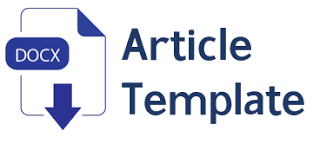INTERNALIZATION OF CARBON TAX EXTERNALITIES : SYSTEMATIC LITERATURE REVIEW
Keywords:
Internalization of externalities, carbon tax, implementation strategiesAbstract
This systematic literature review examines the internalization of carbon tax externalities by referring to scientific articles, empirical studies, theoretical frameworks, and practical insights to find effective strategies for implementing carbon tax in Indonesia. Carbon tax has been proven to be an effective instrument in reducing carbon emissions in various countries, such as Sweden, British Columbia in Canada, and the European Union. Sweden, for example, has significantly reduced per capita CO2 emissions without hindering economic growth since implementing the carbon tax in 1991 with an initial rate of around $30 per ton of CO2. British Columbia has also recorded similar success with its revenue-neutral carbon tax introduced in 2008. Nonetheless, challenges in implementing carbon taxes remain, including carbon price fluctuations and political resistance, as seen in Australia. The Indonesian government enacted two regulations related to carbon tax in 2021: Presidential Regulation No. 98 of 2021 on the Implementation of Carbon Economic Value and Law No. 7 of 2021 on the Harmonization of Tax Regulations as part of efforts to mitigate climate change. This systematic literature review highlights the importance of effective policy design and proper implementation in internalizing carbon tax externalities in Indonesia, which is crucial for achieving climate change mitigation goals.
References
Aldy, J. E., & Stavins, R. N. (2012). "The Promise and Problems of Pricing Carbon: Theory and Experience." Journal of Environment and Development.
Andersson, J. J. (2019). "Carbon taxes and CO2 emissions: Sweden as a case study." American Economic Journal: Economic Policy.
Arrow, K. J. (1963). "Uncertainty and the Welfare Economics of Medical Care." American Economic Review.
Bureau, B., & Croute, P. (2014). "Distributional effects of a carbon tax on car fuels in France." Energy Economics.
Carattini, S., Baranzini, A., Thalmann, P., Varone, F., & Vöhringer, F. (2017). "Green Taxes in a Post-Paris World: Are Millions of Nays Inevitable?" Environmental and Resource Economics.
Coase, R. H. (1960). "The Problem of Social Cost." Journal of Law and Economics.
Cramton, P., Ockenfels, A., & Stoft, S. (2017). "An International Carbon-Price Commitment Promotes Cooperation." Economics of Energy & Environmental Policy.
Crowley, K. (2013). "Australia's carbon pricing mechanism: Promise and pitfalls." Climate Policy.
Ellerman, A. D., Joskow, P. L., & Harrison, D. (2010). The European Union's Emissions Trading System in perspective. Pew Center on Global Climate Change.
Fischer, C., & Newell, R. G. (2008). "Environmental and Technology Policies for Climate Mitigation." Journal of Environmental Economics and Management.
Goulder, L. H., & Schein, A. R. (2013). "Carbon taxes vs. cap and trade: A critical review." Climate Change Economics.
Hallegatte, S., et al. (2013). Risk Management Approaches for Climate Change Adaptation. Springer.
IPCC. (2018). Global Warming of 1.5°C: An IPCC Special Report.
Kementerian Keuangan Republik Indonesia. (2021). Undang-Undang Harmonisasi Peraturan Perpajakan (UU HPP).
Metcalf, G. E. (2019). Paying for Pollution: Why a Carbon Tax is Good for America. Oxford University Press.
Moraga, J., & Bureau, B. (2020). "Carbon tax in a climate policy context: Chile’s experience." World Bank Group.
Murray, B. C., & Rivers, N. (2015). "British Columbia’s revenue-neutral carbon tax: A review of the latest ‘grand experiment’ in environmental policy." Energy Policy.
Nelson, G. C., et al. (2014). "Climate change effects on agriculture: Economic responses to biophysical shocks." Proceedings of the National Academy of Sciences.
Nordhaus, W. D. (2008). A Question of Balance: Weighing the Options on Global Warming Policies. Yale University Press.
Ostrom, E. (1990). Governing the Commons: The Evolution of Institutions for Collective Action. Cambridge University Press.
Parry, I. W. H., & Williams, R. C. (2012). "Moving U.S. Climate Policy Forward: Are Carbon Taxes the Only Good Alternative?" Resources for the Future.
Pearce, D. (1991). "The Role of Carbon Taxes in Adjusting to Global Warming." Economic Journal.
Pigou, A. C. (1920). The Economics of Welfare. Macmillan.
Qi, T., & Lu, J. (2021). "China's carbon market: Lessons learned from the pilot trading systems and prospects for a national system." Energy Policy.
Sovacool, B. K., Pigou, A. C. (1920). The Economics of Welfare. Macmillan.
Spence, M., & Zeckhauser, R. (1971). "Insurance, Information, and Individual Action." American Economic Review.
Stern, N. (2007). The Economics of Climate Change: The Stern Review. Cambridge University Press.
Stiglitz, J. E., & Stern, N. (2016). Report of the High-Level Commission on Carbon Prices. World Bank.
World Bank Group. (2020). State and Trends of Carbon Pricing 2020. Washington, DC.
WHO. (2018). Ambient Air Pollution: Health Impacts.
Carbon Tax Report – GIZ Pool of Experts DRM on Government Revenue dengan judul: “Carbon Pricing Assessment: Cap and Tax Scheme for Coal-fired Power Plant in Indonesia – Page 21-25”.










